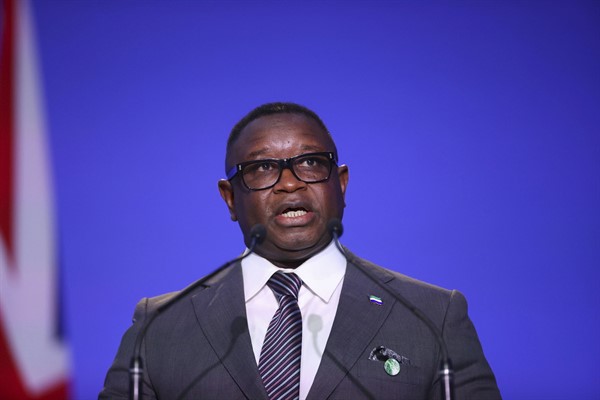When Sierra Leone released the provisional figures of its population and housing census on May 31, the numbers suggested a population increase of 6.3 percent since the last count in 2015. That’s not an unexpected rise over a six-year period, given that the country’s estimated annual growth rate was 3.2 percent during the 10 years prior. Nevertheless, the way population growth was distributed across the country has sparked ongoing debate about the credibility of the census, particularly in anticipation of general elections next year.
The country’s southern and eastern districts saw significant population jumps, with the biggest increases in Kenema, with 26.7 percent; Bo, with 31.5 percent; and Bonthe, with 48.2 percent. Meanwhile, districts in the north and west saw important declines. Bombali’s population dropped by 36.1 percent, for instance, while Western Area Urban and Rural, which includes the capital city Freetown, declined by 45.8 percent and Koinadugu by 49.6 percent.
If these numbers raised eyebrows, it was because of how they fit into Sierra Leone’s electoral context. The southern and eastern districts are the political strongholds of the ruling Sierra Leone Peoples Party, or SLPP, while the northern and western districts are where the opposition All People’s Congress, or APC, draws most of its support.

